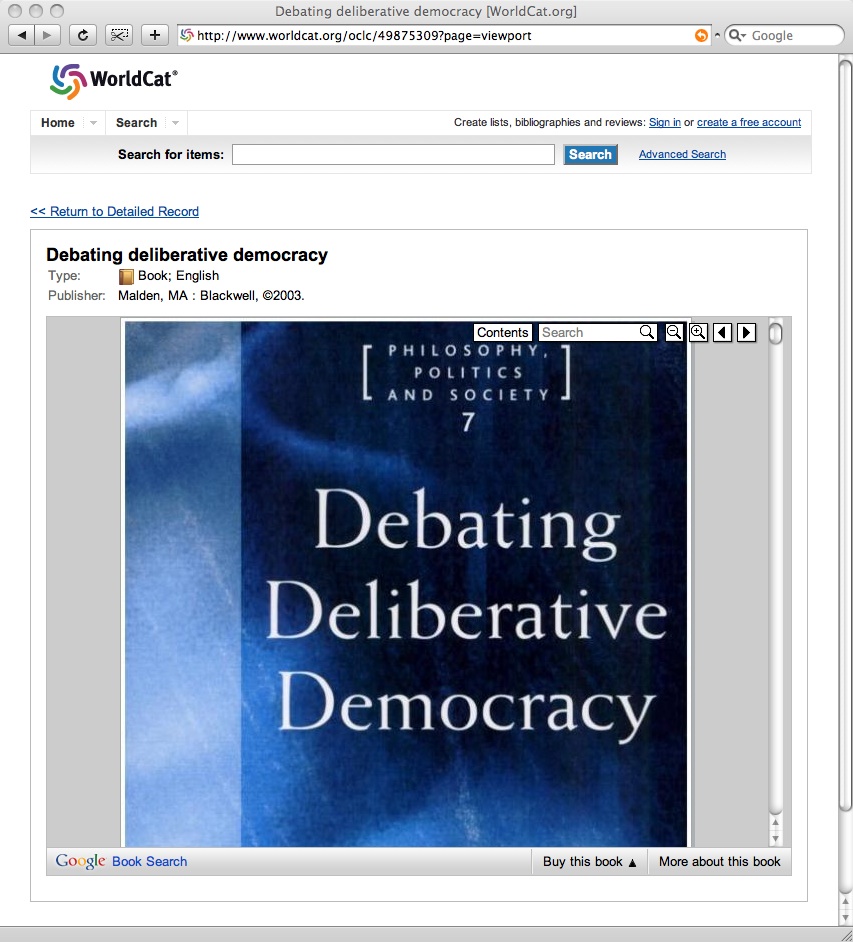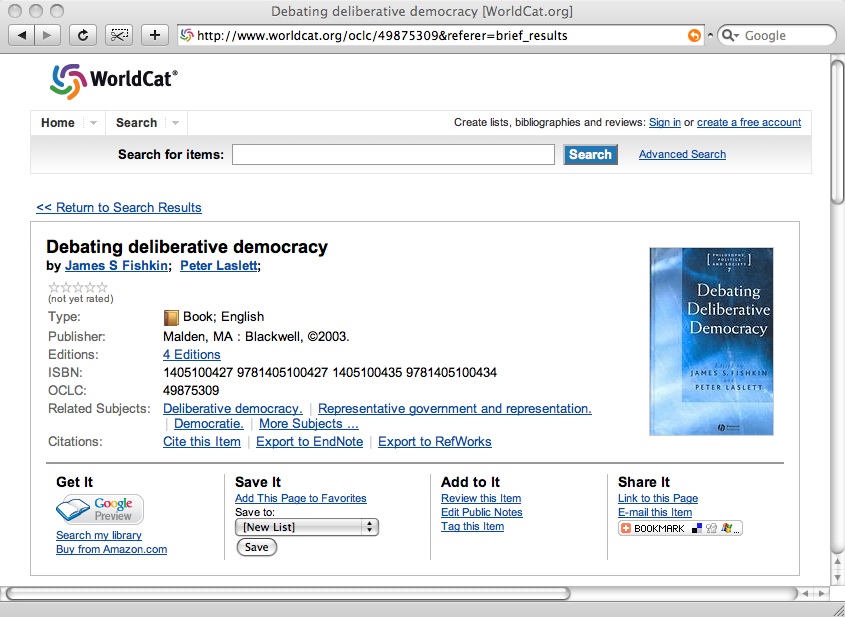
ביל קרני, מנהל תוכן, WorldCat
"ממשקי ה-API של Google Book Search מייצגים התקדמות חשובה בגישה לתוכן שנסרק, מטעם הספריות שמשתתפות בפרויקט הספרייה של Google Book Search. העבודה המשותפת שלנו מאפשרת לנו להרחיב את הנוכחות של הספריות האלה ושל האוספים שלהן באינטרנט."
מי הם
כקואופרטיב הספריות הגדול בעולם, המטרה של OCLC היא לחבר אנשים לספריות ולאוספים שלהן, לא רק לספרים, אלא גם לאוספים אלקטרוניים ודיגיטליים.
ארגון WorldCat.org מאפשר לחפש באוספים של יותר מ-10,000 ספריות שמשתתפות בשיתוף הפעולה עם OCLC. ספריות WorldCat נועדו לספק גישה למשאבים שלהן באינטרנט, ושם רוב האנשים מתחילים את החיפוש אחר מידע.
Google Book Search ו-WorldCat
המטרה של OCLC היא להגדיל את החשיפה ואת הגישה לספריות ולאוספים שלהן בכל העולם. אנשים משתמשים ב-WorldCat.org כדי לאתר, להעריך, לרשום ולבדוק חומרי ספרייה באינטרנט. האפשרות לספק להם דרך קלה להתחבר עם הטקסט המלא (או הזמין) של היצירות שמעניינות אותם באמצעות Google Book Search, יכולה לשפר מאוד את תהליך הגילוי ב-WorldCat.org. בעזרת התכונה החדשה הזו, הלקוחות יוכלו לאתר את תוכן הספרייה דרך WorldCat.org, לראות את הטקסט שמוצג על ידי Google דרך ממשקי ה-API שלה ולאתר עותק של הפריט בספרייה הקרובה אליהם.
ממשקי ה-API של Google Book Search גם ישפרו את החוויה של המבקרים ב-WorldCat.org, כי אנשים שמחפשים מידע יכולים עכשיו לראות טקסט מלא בדיגיטל ב-WorldCat.org. ככל שהם יוכלו למצוא יותר מידע ב-WorldCat.org, כך גדל הסיכוי שהם יתחברו לספריות. כעת WorldCat.org נתפרש כספק של תוכן מוערך יותר, שיחזיר משתמשים שיתחילו את החיפוש באינטרנט לספריות.
שילוב עם Google Book Search
OCLC התחיל את השילוב באמצעות התכונה 'קישורים דינמיים של חיפוש בספרים', שמאפשרת למשתמשים לנווט לתצוגה מקדימה של חיפוש בספרים כשהיא תהיה זמינה. לאחר מכן, OCLC השתמש ב-API של מציג מוטמע כדי להטמיע דף תצוגה מקדימה ישירות ב-WorldCat.org, באמצעות קוד בצד הלקוח. דף התצוגה המקדימה הזה שומר על הניווט, פרטי הספר וסגנון האתר ב-WorldCat.
מנקודת מבט טכנית, השילוב של מציג הספרים המוטמע היה מהיר למדי והגדרנו את הדף החדש תוך מספר שעות. התהליך כרוך בהוספה של CSS מותאם אישית בכותרת, בהעברה של מספר ISBN/OCLC דינמי והוספת תצורת השפה בקריאת ה-JavaScript אל ה-API.

